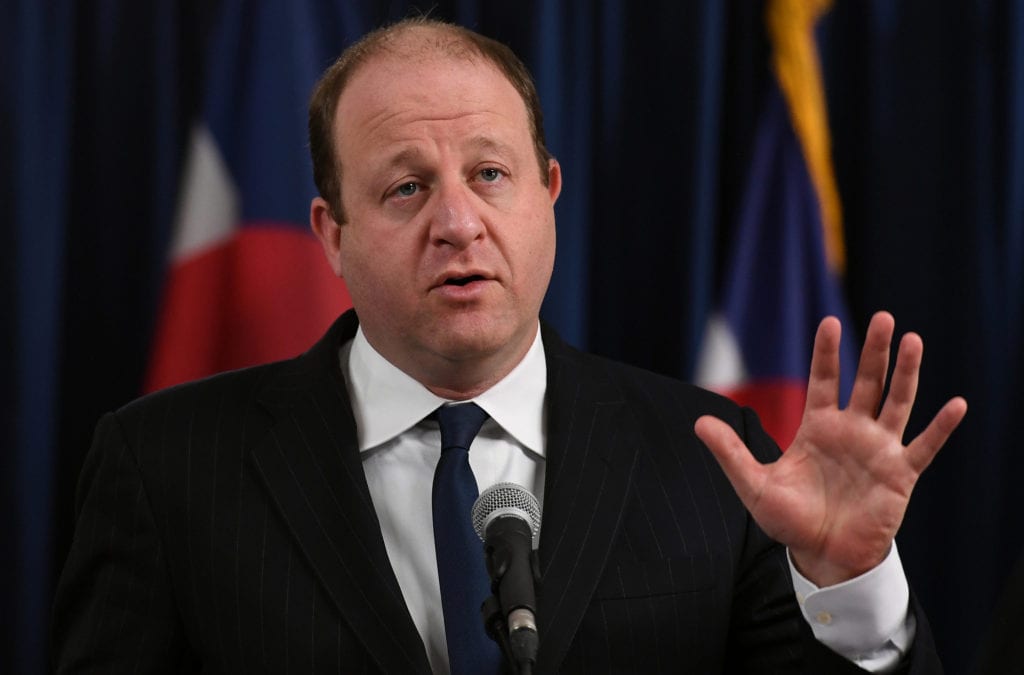Early in the pandemic, Jared Polis said he’d be as happy as anyone to lighten the heavy hand of state government once COVID was retreating. Having created, amended or extended since March 2020, the governor told The Denver Post he’s ready to let go of the unprecedented authority he’s maintained.
“The pandemic still exists,” he said, but “our hospital capacity is no longer threatened. We have 60% of the population vaccinated. So at this point, we would go to kind of regular order, which means the legislature passes laws, I can sign laws, and you can see the phaseout of those executive powers over time.”
He continues exerting executive authority through a wide range of orders, though his pace has slowed of late: 17 in March, 13 in April, 10 in May and six so far in June. Among the June orders was an extension of the state’s disaster emergency declaration, over state military forces, seizure of property, evacuations, quarantines and even disposal of dead bodies.
“In general, the time for these emergency actions is over, or near over. I believe in a republic and I believe in three branches of government,” Polis said. “It’s not the role of the governor to do that long-term. It’s the role of the governor to react in an emergency.”
Governors in eight states, plus the mayor of Washington, D.C., have already ended states of emergency, according to the National Academy for State Health Policy. Others, including Massachusetts and Alabama, are expected to follow suit in the coming weeks. Colorado is among 33 states no longer under a mask mandate.
Overall, Coloradans have mostly approved of the governor’s handling of the pandemic. His favorability rating has remained above 50% throughout, and in May stood at 61%, according to of more than 500 likely voters.
Polis’ promise to phase out his powers is welcome news to Republican state officials who have been trying to force such a move for months. Their various in this and future emergencies all failed in the Democrat-controlled legislature over the last year.
One Republican who made such an attempt, Sen. Paul Lundeen of Monument, said he’ll believe Polis will step back when he sees it. For instance, he said, he’s skeptical that schoolchildren won’t be missing class in the fall due to what he sees as the state’s overreaching contact-tracing and quarantine guidelines.
All along, Republican leaders in Colorado said the legislature should have been more involved in COVID-19 response. At one point, GOP lawmakers proposed a special legislative session on preventing K-12 learning loss during the pandemic, which the Democrats, generally comfortable with Polis’ leadership, dismissed as a political stunt.
“You can’t go backwards but I’d like to learn from this and should we ever have something of this nature again have more people at the table with authority sooner,” Lundeen said.
Local government officials across the political spectrum have complained they weren’t in the loop, and were tasked with implementing state orders they’d sometimes find out about at the same time as the general public. County officials asked for more advance notice of changes, and lawmakers went as far as to pass a bill in 2020 to require the governor to report to them every few months during an emergency.
The reaction to Polis’ stated dial-back is more mixed on the left. For example, Jason Legg, an eviction defense attorney who works with the nonprofit 9to5 Colorado, said infections and hospitalizations going down shouldn’t lead Polis to believe housing instability isn’t still a crisis worthy of executive action.
A federal moratorium on evictions in many — but not all — cases is set to expire at the end of this month. Barring a new one from the Biden administration, it’ll be up to governors whether to block evictions.
Polis isn’t keen to, and hasn’t set a state moratorium since late 2020. But with Census Bureau data showing about 15% of Colorado tenants behind on rent, Legg said the new tenant protections Colorado lawmakers just passed (and Polis said he’ll sign) aren’t enough — even with state housing assistance.
“Now all of a sudden we’re going to play stupid?” Legg said. “We know that there’s still a ton of rent arrears and we know that leads to eviction, and to do nothing about that is a shame. A moratorium would be a good place to start in terms of addressing that.”
Denver Democratic Rep. Steven Woodrow helped draft a bill to install a state-level eviction moratorium in Colorado through the summer, which he said was shelved in the waning days of session in part because Democrats couldn’t reach an agreement with Polis.
He also said he hopes Polis would be flexible moving forward because the legislature adjourned a week ago and isn’t scheduled to return to the Capitol until January.
“If he were to back off executive orders entirely, we could have a situation where we need him to act,” Woodrow said, “and we wouldn’t want him to be beholden to some line in the sand on executive orders.”
This content was originally published here.

